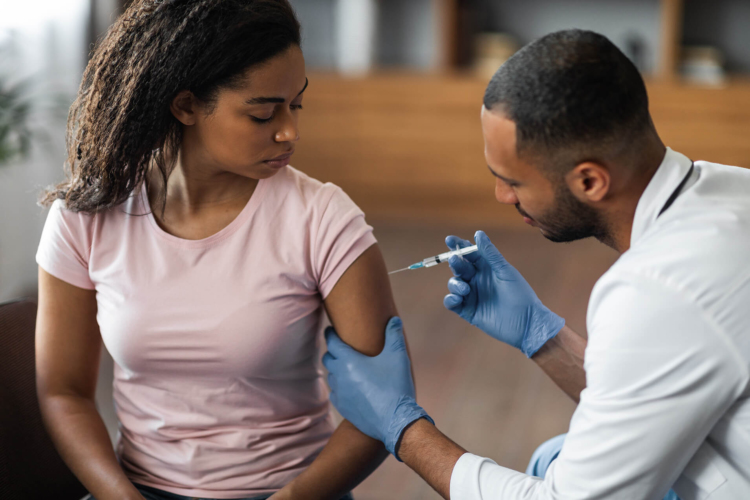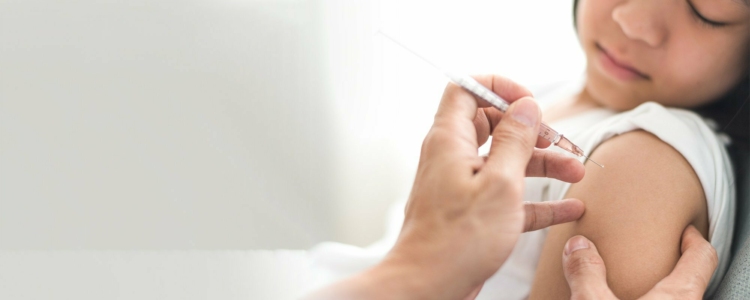Maximum coverage, minimum risk
To provide the best possible protection, the most people possible have to be vaccinated. When it comes to an extremely contagious disease like the measles, 95% of the population has to be vaccinated to effectively prevent transmission. The more unvaccinated people there are, the higher the risk of contracting a disease.
So, a bit like the knights of olden days, we are all a protective shield for vulnerable people, whether we're talking about our young children, our grandparents or other people that we meet during our day. Vaccination protects not only us, but also those around us.
Some people cannot get certain vaccines because of an allergy, their age, the state of their health or other factors. It is therefore impossible to reach 100% immunization coverage, so there will always be a vulnerable population. As well, since no vaccine is 100% effective, some vaccinated people can also get sick. Nonetheless, the greater the number of people who are vaccinated, the greater the number of people who are protected.
The boomerang effect
The transmission of serious infectious diseases has the potential of growing rapidly within a population.
Canada eradicated chronic measles in 1998. Nevertheless, given the extremely contagious nature of the disease (one infected person can quickly infect 15 unvaccinated people), outbreaks resulting from imported cases (protection against disease varies from one country to another, so you can catch a disease abroad and bring it back to Quebec) can occur within unvaccinated communities and spread like wildfire.
In 2011, cases of imported measles led to a major outbreak in Canada. Of the 700 reported cases – mainly in Quebec – 80% of those affected were not adequately immunized for their age. The same type of outbreak happened in 2015 in Canada, the United States and Mexico.
Similar outbreaks occurred in Quebec in 2019. They were caused by travelers from France, where outbreaks were reported. The disease then spread to adolescents, most of whom were unvaccinated. In other words, vaccine-preventable diseases come back in full force as soon as immunization coverage decreases.
Getting vaccinated in Canada is not mandatory, however it is strongly recommended in order to protect the community. This is why the entire Quebec population has access to various vaccination programs free of charge.
This information is not a substitute for professional medical advice and Accès pharma affiliated pharmacist-owners cannot be held responsible for this information. The information was true and accurate at the time of publication, but it is subject to change.






